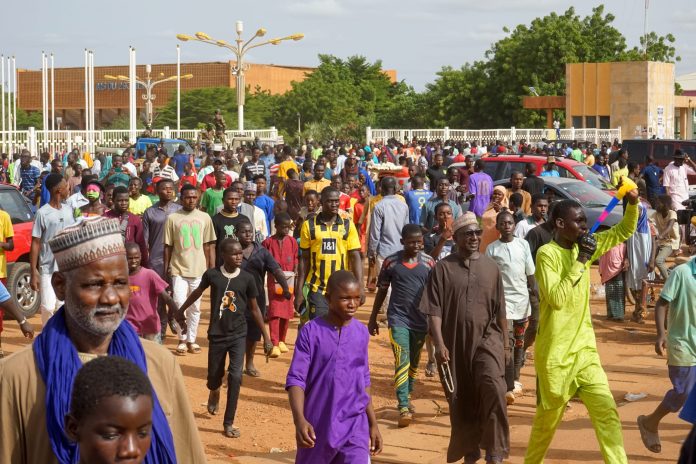More than a century after French troops destroyed villages and looted cultural treasures in an attempt to incorporate Niger into its colonial empire, France has declared its readiness to engage in dialogue on possible restitution. However, the country has still not officially acknowledged responsibility for those events.
France is open “to bilateral dialogue with the authorities of Niger”
In a document seen by The Guardian, France’s permanent representative to the UN said that the country was “open to bilateral dialogue with the authorities of Niger, as well as to co-operation in the study of the origin of artefacts and cultural heritage.”
The response on June 19 was in reaction to a letter sent two months earlier by the UN Special Rapporteur. The letter addressed a complaint from four Nigerian communities — descendants of victims of the 1899 Central African Mission (MAC) expedition, one of the most brutal colonial operations in African history.
Professor of international law Bernard Duem, who is working on the case as a UN special rapporteur, noted that despite the French authorities’ awareness of the atrocities committed, no MAC participant had been held accountable. According to him, France had not conducted an official investigation and had not acknowledged the suffering caused.
Colonial past
In 1899, Captains Paul Voulet and Julien Chanoine led a detachment of tirailleurs, local African soldiers, and fought their way through what is now Niger. Thousands of civilians were killed, supplies were looted and villages were burned. As a result of this punitive expedition, Niger became part of French West Africa the following year.
Historian Matthew G. Stannard, in his book The Trail of the Assassin: A Colonial Scandal in the Heart of Africa (2009), quotes Voulet as saying: “I came to build an empire… if I have to kill, I will kill; if I have to burn, I will burn. The end justifies the means.”
In the town of Birni Nkonni, about 400 people were killed in a single day. Villages such as Tibiri and Zinder were destroyed, and the bodies of the dead were displayed at the entrances. Survivors often fled to Nigeria and never returned.
Although in recent years France has begun to acknowledge certain episodes of its colonial past — such as the genocide in Rwanda (recognised in 2021), the mass killings in Sétif, Algeria (1945) and the suppression of the uprising in Madagascar (1947) — the history of the Voula-Chanouana Mission remains virtually unknown. It is hardly mentioned in French school curricula and only briefly in Niger’s textbooks. For many years, there was a bureaucratic cover-up, and the testimonies of eyewitnesses and their descendants were fragmentary due to trauma and years of silence.
The complaint was based on documents collected by Nigerian historians, as well as archival reports, including those by Voulet himself. British-Senegalese lawyer Jelia Sane, representing the affected communities, said that work is currently underway to gain access to French state archives in order to establish a complete picture of what happened.
“Even today, the graves of some French soldiers are located on the territory of these communities, while the memory of the local residents who died has not yet been commemorated,” Sane emphasised.
For history and geography teacher Hosseini Tahir Amadou, who started the campaign for recognition in 2014, acknowledging the crimes will be an important first step. “After that, we can move on to the question of compensation,” he said. “Many valuable items from our history were taken to France. We want them back.”
In its response, France neither acknowledged nor denied the crimes, citing the principle of non-retroactivity of international law. According to the French side, the treaties that were allegedly violated were ratified decades after the events.
